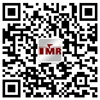Topic: Quantitative Nanomechanical Measurements of Biological Molecules
Speaker: Dr. Mingdong Dong
Interdisciplinary Nanoscience Center (iNANO) and Department of Physics and Astronomy,
University of Aarhus, DK-8000 Aarhus C, Denmark
Time: 15:00-17:00 PM., (Mon.) Sept.9th, 2013
Venue: Room 403, Shi Changxu Building, IMR CAS
Abstract:
Force spectroscopy is a powerful method to study the structural and energetic dynamic of biomolecules. AFM-based force spectroscopy method allows measuring the interactions within individual molecules. Recently progress has been made in the measurement and characterization of dynamic nanomechanical properties using specially designed torsional harmonic cantilever (THC) sensor.The advantage of THC sensor based-AFM allows running the torsional mode to enhance harmonic signals in liquid environments. THC has the ability to recover the tip–sample force waveforms which provide high-speed force–distance curves and allow specific material properties to be measured with high spatial resolution.The entire period of the tip sample force waveform is approx. 100 micro seconds and the interactions span 20 micro seconds. Furthermore, the waveform exhibits low force noise of approx. 10 pN. A reduction in the peak interaction forces allows investigations of various types of proteins without causing them to be denatured. In addition, owing to the microsecond duration of force loading, the mechanical properties derived from these waveforms will reflect molecular behaviour at the microsecond timescale. This talk will review the recently developed experimental technique and its applications in quantitative imaging of biological molecule stiffness and the force mapping based on molecular recognitions.



